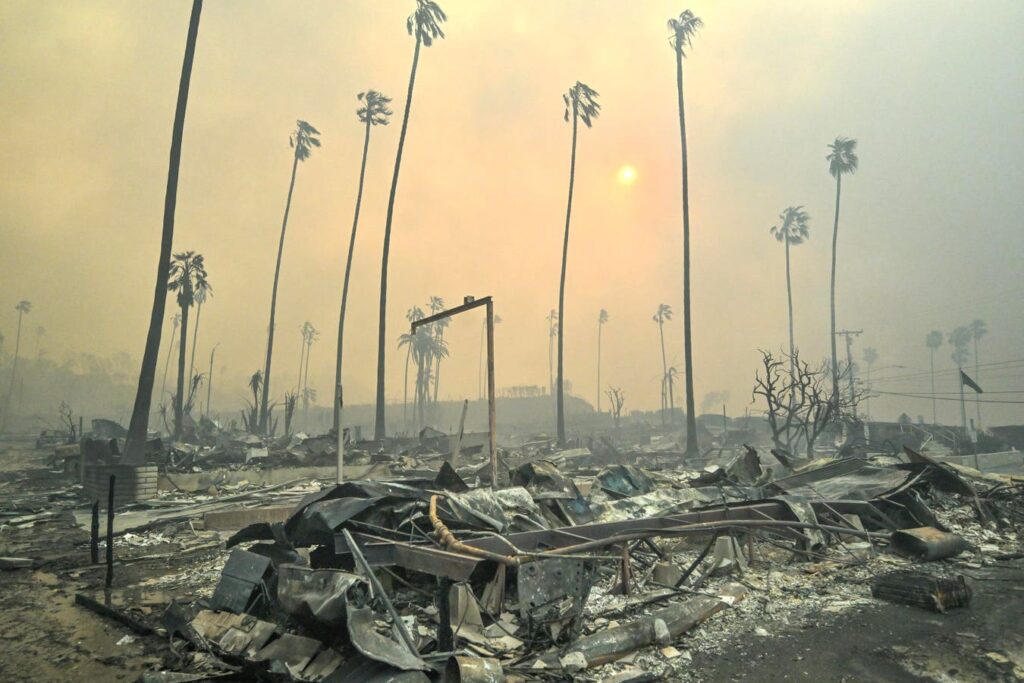After devastating losses, some fire victims will hopefully be receiving money soon from their insurance companies, even if any eventual lawsuit recoveries may be years away. The IRS and the California FTB gave tax extension and other relief to fire victims, but the number and complexity of the tax rules can be dizzying. Amounts received following a wildfire are not automatically tax-free, although there are mechanisms that can make them effectively tax-free in many cases. Take insurance proceeds, for example.
Some types of insurance payments are treated as tax-free by the IRS. The tax code allows taxpayers to exclude from their income amounts received from insurance for the temporary additional living expenses created by the wildfire resulting from the loss of the taxpayer’s principal residence, if those expenses are reasonable and necessary, such as rental payments for temporary replacement housing or replacement transportation. If the wildfire that destroyed your home was a federally declared disaster, the tax code also generally allows you to treat insurance proceeds that compensate you for your personal property, such as clothing, furniture, and household goods, as tax-free, if the home was your primary residence.
But most insurance proceeds have tax implications. Under the normal tax rules, amounts received for damage to property, including property insurance payments, are treated for tax purposes as sales proceeds. In a sale, whether or not you have taxable profit or gain is based on your tax basis in the property sold, not its fair market value. This may seem unfair because you are only being reimbursed for what you lost.
However, for tax purposes, if you invested $1 million into the purchase and renovation of a home, and then receive $3 million in insurance proceeds for the home when it is damaged or destroyed in a fire, you have not merely broken even, you have received $2 million in cash “profit” from your investment. Therefore, it is possible you may have “casualty gain” from insurance proceeds if you receive insurance proceeds for your property that exceed your tax basis in the property.
As with any “sale,” insurance proceeds for property damage are tax-free to the extent of your tax basis in their damaged property (that is, the amount you paid to purchase the property plus any expenses that can be capitalized into their tax basis of the property, such as the cost of major renovations and repairs to the property prior to the fire and post-fire repairs made prior to receiving the insurance proceeds).
Principal Residence Exclusion
To the extent the insurance proceeds for your home exceed your tax basis in the property, you may qualify to claim the principal residence gain exclusion (which is $250,000 or $500,000, depending on your filing status — for example, single, married filing separately, married filing jointly) which can shield additional amounts from being taxable casualty gain. For any remaining surplus, that amount is ostensibly capital gain that would ordinarily be subject to income tax.
Section 1033 Involuntary Conversion Election
Fortunately, property owners can usually make an election under Section 1033 of the tax code to defer paying tax on their casualty gain. Making such an election allows you to reinvest the insurance proceeds into the repair, reconstruction, or replacement of your damaged property within a prescribed statutory timeframe. The time to reinvest under Section 1033 is simple in concept, but it depends heavily on your facts.
Generally, if you have casualty gain from a federally declared wildfire that damaged your principal residence for the first time in a given tax year, then you have until four years from December 31 of that year to reinvest the proceeds under Section 1033. Any casualty gain you have in any subsequent tax year must be reinvested by the same deadline, which was based on the first year you had casualty gain.
Therefore, it is possible that some casualty gain in a given year may have less than four years to be reinvested under Section 1033, if casualty gain was first triggered in a previous tax year. This can create complications for taxpayers who receive insurance proceeds over several years. It can also create timing problems where a taxpayer receives insurance proceeds in one year, and a litigation recovery for the same fire several years later.
Indeed, it is possible that the Section 1033 replacement period may have already ended as a result of casualty gain created several years earlier. That is, the Section 1033 replacement period may have already ended when the taxpayer receives a litigation recovery for their fire. It can essentially make the Section 1033 election unavailable. In short, the timing rules under Section 1033 are tricky, and not exactly intuitive.
But if you can meet its timing rules, the property owner does not have to pay immediate tax on the casualty gain, and the gain can be deferred indefinitely until the property is later sold. The net effect of these rules is that a fire victim often will not owe any income tax on their insurance proceeds until the property is later sold. However, this is not because of a blanket exclusion, but because of a more complex set of tax rules and elections that should be addressed on your tax returns.
There are many more tax rules that Los Angeles area and other fire victims need to know. Even the rules for claiming a casualty loss are tricky. Fortunately, some wildfire settlements are tax-free.
Read the full article here

